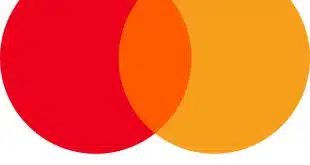With the announcement on Thursday that PayPal Inc. will process payments for Facebook, the massive social network has found a major-brand payments partner and PayPal has established a tie to what could become an enormous online marketplace with equally big transaction potential. The two companies said PayPal will process payments for advertising on Facebook and will also handle payments for Facebook Credits, the virtual currency the site has been testing with a handful of sellers of digital goods. Companies both in the U.S. and abroad will be able to use PayPal, which processes for 24 currencies in 190 countries, to buy ads on Facebook using what the site calls its online-advertising tool. A spokesman for PayPal tells Digital Transactions News that processing for FaceBook Credits will start within the next few days. PayPal will start handling ad payments “within a couple of weeks,” the spokesman says. Clearly, international reach and the ability to process in local currencies was part of what Facebook was seeking. “As our business has grown, offering local methods of payment has become increasingly important for advertisers who want to buy Facebook ads,” said Dan Levy, director of payment operations for the Palo Alto, Calif.-based social network, in a statement. The exact scale of the transaction potential PayPal may be able to tap into through the arrangement with Facebook was not immediately clear. The PayPal spokesperson would not comment on the matter, and a spokesman for Facebook says he has not seen any estimates. Six-year-old Facebook, which connects more than 400 million people around the world, has been looking for some time for a way to monetize the increasing commercial presence on its site. Its most recent move was to create FaceBook Credits, which can be used to buy digital goods such as games and to purchase items from its own online gift shop. Credits can be purchased with credit cards, and last summer Facebook added the capability of using Zong, a mobile-payments processor that charges purchases to users' mobile-carrier bills. But the hundreds of millions of individuals linked by the site have attracted a flood of corporate storefronts, adding to the pressure for Facebook to find a payments solution. “There's been a gold rush of marketers onto Facebook, they realize they've got to do Facebook and Twitter,” says Erin McCune, an analyst at Glenbrook Partners LLC who follows payments matters related to social networks. “As yet, there's not a lot of commerce happening, but I believe it will happen.” For now, PayPal usage may be limited. Facebook users have alternatives to Facebook Credits, which aren't yet widely accepted. And even for Credits PayPal is not the exclusive payments provider. “All this has done is introduce PayPal as a mechanism to pay for Facebook Credits,” says McCune. “And Credits are not the only one way to pay for things.” But the move to incorporate PayPal as a payments processor may signal that Facebook has decided to base its payments strategy on an established third-party processor with international reach and experience dealing with payments for a huge online marketplace. PayPal is a unit of eBay Inc., and even before the online auction giant bought PayPal in 2002 it was a major source of transactions for the processor. The deal with PayPal may also show that Facebook has rejected a go-it-alone approach to payments. “This is opening up payments on the [Facebook] platform itself,” says McCune. “To me it indicates a partner strategy.” The Facebook spokesman confirms the company is not interested in internal development of a payments engine. “Right now we're just focusing on making it easier to pay for our Credits and for ads,” he says.
Check Also
MoneyGram Adds Mastercard Move for Cross-Border Payments
MoneyGram International Inc. said it will adopt Mastercard Move, the card network’s cross-border money-transfer application. …





